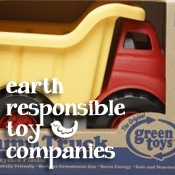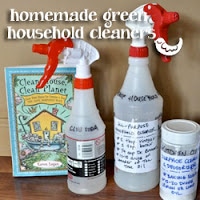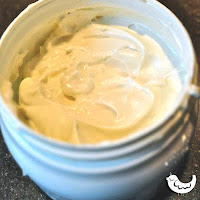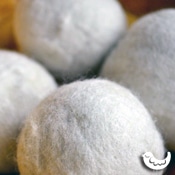12 Ways to Make Less Trash and Go Green
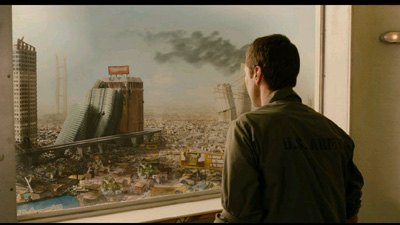
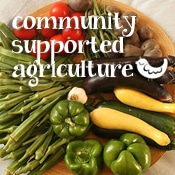 |
| Click here for my post on CSAs |
#1 – Join a CSA – Community Supported Agriculture
Joining a CSA in your area means that you would buy into a share of a local farm and get weekly deliveries (or pick it up yourself) of whatever is fresh and in season at that farm. This helps to reduce trash because you won't have the packaging that comes with packaged produce, meat, and dairy from the grocery store.
#2 – Buy Food in Bulk
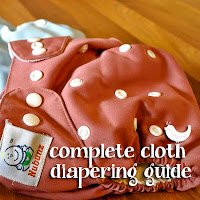 |
| Click here for my series on cloth diapering |
#3 – Cloth is Your Friend – Cloth Diapers Instead of Disposables, Mama Cloths, Reusable Toilet Paper, and Cloth Napkins
Cutting down on all the paper products we use on a daily basis will really help reduce trash production. Cloth napkins are an easy way to start, as many of us already have some of those wasting away in the “holiday” box in the attic.
Using cloth diapers can be an intimidating thing to start, even when you really believe in its benefits, speaking from experience. But it drastically reduces your trash output and the very harmful effects disposables have sitting in landfills. But using some cloth is still better than the alternative if it's hard for you to switch completely. Baby steps in the right direction are better than no steps at all!
As for the mama cloths and reusable toilet paper…you're probably picturing some old dude with a couple of rotten teeth and a long white beard out in a broken-down outhouse in the backwoods of (fill in with your state of choice). We have gone super crunchy and now use cloth toilet paper and love it! See my post on that no sewing project here. Penniless Parenting has a sewing tutorial for mama cloths if you're ready to take the plunge (reusable maxi pads)!
#4 – Make Your Own Baby Wipes
If you're already cloth diapering, it isn't so much harder to take the next step and has reusable baby wipes that you throw in the diaper pail along with the cloth diapers to wash. The easiest method? Use baby washcloths and spray with water (add some drops of lavender, witch hazel, or smear on some aloe for something extra). See my post on making your own baby wipes here with no sewing. I've used this before, and I find them to be MORE effective in wiping off stuck-on-you-know-what than even brand-name wipes like Huggies! This is a serious money saver as well, especially if you buy all-natural or organic wipes.
Other green ways to make baby wipes include reusing old clothes. Cut them into pieces the size of wipes, and you've reused, recycled, and gone green!
#5 – Use Old Bathroom and Kitchen Hand Towels as Paper Towels
As my first set of bathroom hand towels and kitchen washcloths and towels began to get stained, I decided they'd be perfect to use instead of paper towels (it was also a wonderful excuse to buy pretty new towels!). So, now I use these old towels to wipe up spills and other messes, and they are way more effective than thin paper at absorbing liquids. To make it convenient, I keep the towels on hand in the kitchen and bathroom and throw them in my cloth diaper pail, then wash them in hot water with the diapers.
#6 – Buy Products with Less Packaging, like from Green Toys
The packaging that comes with toys and electronics is truly ridiculous – we've all had those cursing moments when we're very unsuccessfully trying to open a toy or a phone that comes in the mail. Often the packaging takes up two or three times more room in the trash than the actual product would! So, this does require research to buy from a company that uses less recyclable packaging. Another way to avoid this is to buy used.
Other examples of excessive packaging include juice boxes, yogurt containers, fun-size snacks, and individually wrapped slices of cheese. Of course, I agree, the convenience is wonderful, and you might need to purchase them every now and then, but the trash they produce outweighs the convenience for me.
#7 – Compost, Compost, Compost
We don't have an official compost of sorts (yet – it's on the list!), but we do have a huge pile of yard waste in our woods. We chop up branches and large twigs into small pieces with the loppers, throw in leaves and grass clippings, and it decomposes into fantastic, black soil that we use in the planting beds and yard. Composting your food scraps will reduce the trash as well.
#8 – Make Your Own Green Cleaning Products and Reuse Bottles and Jars to Store
Making your own green cleaning products is not only cheaper, but it's also so much better for the environment and the safety of our families. Plus, you can reuse old shampoo and conditioner bottles and even food containers to store the products. I've found my homemade products do just as good of a job, if not better than store-bought ones, and I'm not throwing out containers after they're all gone.
I've also been making my own laundry and dishwashing detergent and buying the ingredients in bulk from Amazon, which reduces trips to the store and packaging waste.
#9 – Make Your Own Cosmetics
I've been making my own lotion, shampoo, conditioner, deodorant, hair cream, and body scrub for a while now, and I love how I don't have to worry about chemicals, high prices, and excessive packaging anymore. I've also reused old containers to keep them, so I really reduced trash output!
#10 – Eliminate Dryer Sheets and Make Your Own Wool Dryer Balls
Dryer sheets are thrown away after each use – such a waste! Plus, they are full of harmful chemicals that haven't been thoroughly researched. For peace of mind, to save some cash, and for the environment, make your own from wool roving or yarn. These last for years and will save you trips to the store!
#11 – Use a Mop with Washable Pads
I will never go back to having a Swiffer now that I've got my Haan Steam Mop. This puppy is a powerful floor cleaner, cleaning hardwoods, laminate, tile, and even carpet with just water and a reusable microfiber pad. No chemicals on the floor to wonder about either! Plus, it heats up to the boiling point, so it really kills germs. There is absolutely no waste once you get this mop!
#12 – Buy Used, Share, Barter and Donate
This is sort of a no-brainer, but donating clothes when you're done with them creates no trash whatsoever, and does a lot of goodwill. You can even donate to other friends, as many of mine have done for me! And when it comes to kids, buying used just makes sense because children, especially babies, outgrow clothes faster than you can blink. We have saved many hundreds of dollars from buying at huge consignment sales, like The Kids Clothesline. The last day of the sale, they always have everything 50% off, so a $1.50 shirt from The Children's Place becomes $0.75!
A great website for bartering is freecycle.org. You join a freecycle group in your own community or town and post when you have something you want to give away or need, then swap with someone looking for the same thing! I put my old Swiffer Wet Jet up, and someone took it right away – it didn't even have the cleaning container anymore, and the lady still wanted it! I was also able to score some New Balance and Nike tennis shoes for my boys from a lady who lived a couple of minutes away, and they were barely used. Booyah!
See, going green does not mean losing the green in your wallet. You will save a lot and feel good about what you're doing for the future!
This green post is being shared at:
Fantabulous Fridays at Little Becky Homecky
A Pinteresting Party at Tutus and Tea Parties
Tiny Tip Tuesday at Nature's Nurture
Sustainable Wednesdays at Frugally Sustainable
Simple Lives Thursdays at Gnowfglins
[optin-monster slug=”xs2yggdkacqf5ww9fqqm”]

